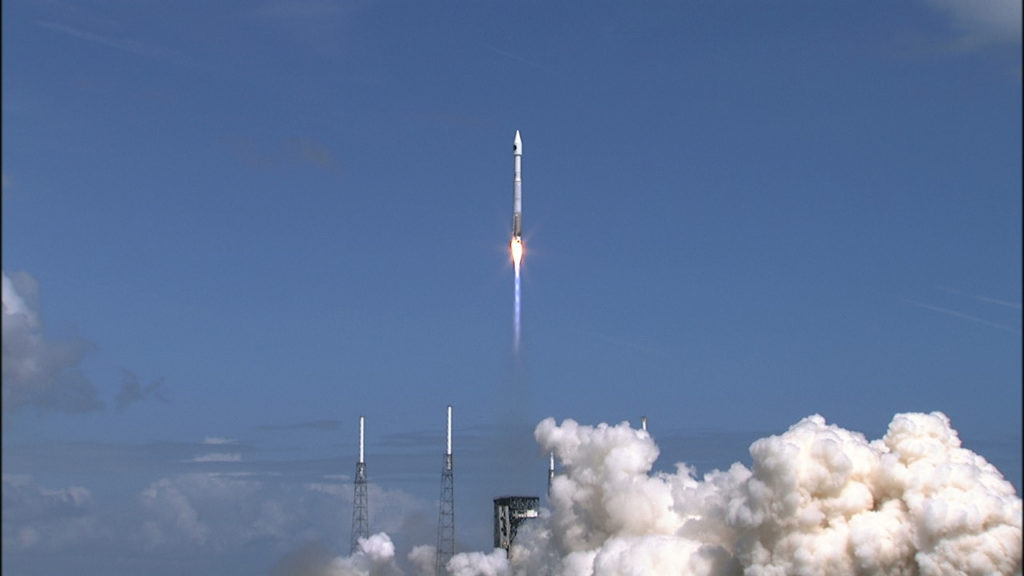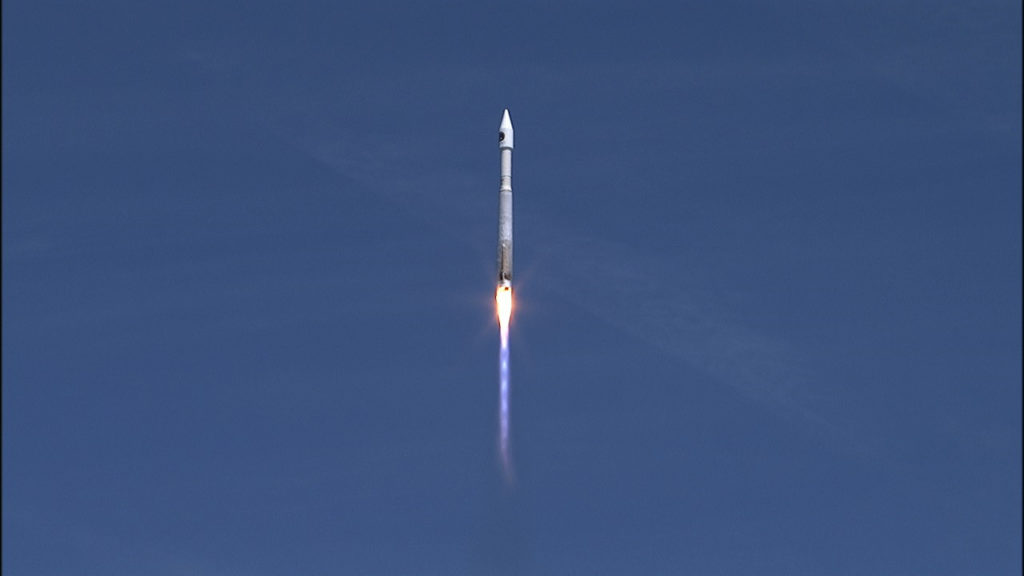The Cygnus module is expected to arrive at the International Space Station early Saturday morning, about 6:05 a.m. as the laboratory flies over southern France. The crew will use the complex’s robotic arm to grab Cygnus and attach it to the station.
Cygnus Flying Solo
Spacecraft separation! The Orbital ATK Cygnus module set to resupply the International Space Station is on its own after a successful liftoff at 11:11 a.m. EDT aboard a United Launch Alliance Atlas V rocket.
Centaur Engine Cutoff
The Centaur’s RL-10 engine has cut off as expected and the vehicle is turning to separation attitude. Cygnus spacecraft separation is coming up in about two minutes.
Another View of Liftoff
Ascent By the Numbers
The vehicle is currently at an altitude of 219 miles traveling at a velocity of 11, 250 miles per hour. The Centaur’s RL-10 engine burn continues until 18 minutes into the flight.
Vehicle Performing as Expected
The climb to orbit is going smoothly as the vehicle hits its ascent milestones on time.
Payload Fairing Jettisoned
The payload fairing protecting the Cygnus module has been jettisoned on schedule.
First-stage Burn Complete; Centaur Takes Over
The Atlas V booster has completed its task of propelling the vehicle through the early minutes of flight and has separated from the Centaur upper stage.
The Centaur burn is under way.
Max Q
The rocket is climbing through “max Q,” the area of maximum aerodynamic pressure.


